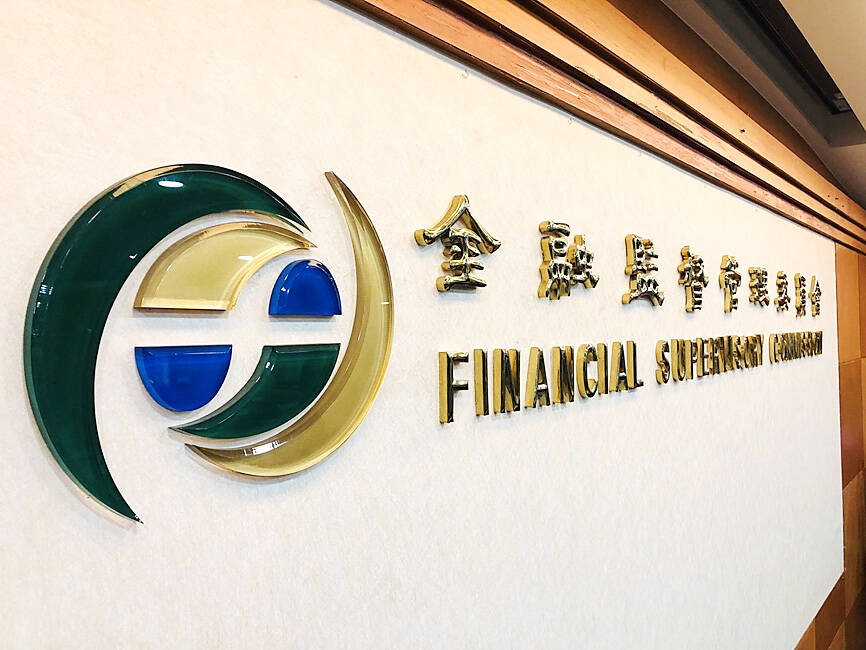Local banks have experienced a 97 percent surge in high-net-worth clients to 3,660 in a nine-month period, from 1,851 at the end of March, as Taiwanese business owners repatriated funds from overseas, while profits expanded from earnings, Financial Supervisory Commission (FSC) data showed.
The assets under management (AUM) of those high-net-worth individuals soared 95 percent to NT$456.3 billion (US$15.03 billion) at the end of last month from NT$233.7 billion at the end of March last year, indicating that each of those clients has seen their assets rise to NT$124 million on average, the data showed.
The FSC last year granted three additinal approvals to local banks to offer the wealth management services specifically targeting wealthy individuals as demand increases.

Photo: Wang Meng-lun, Taipei Times
To cater to the needs of such clients, local banks have introduced new products such as the foreign-currency denominated structured notes offered by Mega International Commercial Bank (兆豐銀行) and First Commercial Bank (第一銀行).
However, most such clients prefer deposits for investments, FSC data showed.
A total of 49.2 percent of the high-net-worth individuals’ combined assets were put into savings, followed by insurance products with a weighting of 17 percent, fund investment at 12 percent, bond investment at 8 percent and investment in foreign-currency denominated structured notes at 5 percent, the data showed.
Such clients might be using bank deposits to hedge against risks presented by the new financial products, the FSC said.
CTBC Bank Co (中信銀行) ranked first among nine banks approved to offer the new wealth management programs, with 1,303 high-net-worth clients and AUM of NT$128.9 billion, the data showed.
Mega International Commercial Bank placed second with 695 clients and AUM of NT$102.6 billion, followed by First Commercial Bank with 450 clients and AUM of NT$72. 2 billion, the data showed.
The FSC in 2020 launched new wealth management rules that would allow eligible banks to operate wealth management programs for high-asset customers for three years.
As CTBC Bank, Mega Bank and First Bank received approval in 2020, they must apply for an extension this year to continue participating in the program.
An analysis of each bank’s internal risk controls, handling of questionable funds, employee training and creative strategy is part of the extension review process, it said.

Nissan Motor Co has agreed to sell its global headquarters in Yokohama for ¥97 billion (US$630 million) to a group sponsored by Taiwanese autoparts maker Minth Group (敏實集團), as the struggling automaker seeks to shore up its financial position. The acquisition is led by a special purchase company managed by KJR Management Ltd, a Japanese real-estate unit of private equity giant KKR & Co, people familiar with the matter said. KJR said it would act as asset manager together with Mizuho Real Estate Management Co. Nissan is undergoing a broad cost-cutting campaign by eliminating jobs and shuttering plants as it grapples

PERSISTENT RUMORS: Nvidia’s CEO said the firm is not in talks to sell AI chips to China, but he would welcome a change in US policy barring the activity Nvidia Corp CEO Jensen Huang (黃仁勳) said his company is not in discussions to sell its Blackwell artificial intelligence (AI) chips to Chinese firms, waving off speculation it is trying to engineer a return to the world’s largest semiconductor market. Huang, who arrived in Taiwan yesterday ahead of meetings with longtime partner Taiwan Semiconductor Manufacturing Co (TSMC, 台積電), took the opportunity to clarify recent comments about the US-China AI race. The Nvidia head caused a stir in an interview this week with the Financial Times, in which he was quoted as saying “China will win” the AI race. Huang yesterday said

TEMPORARY TRUCE: China has made concessions to ease rare earth trade controls, among others, while Washington holds fire on a 100% tariff on all Chinese goods China is effectively suspending implementation of additional export controls on rare earth metals and terminating investigations targeting US companies in the semiconductor supply chain, the White House announced. The White House on Saturday issued a fact sheet outlining some details of the trade pact agreed to earlier in the week by US President Donald Trump and Chinese President Xi Jinping (習近平) that aimed to ease tensions between the world’s two largest economies. Under the deal, China is to issue general licenses valid for exports of rare earths, gallium, germanium, antimony and graphite “for the benefit of US end users and their suppliers

Dutch chipmaker Nexperia BV’s China unit yesterday said that it had established sufficient inventories of finished goods and works-in-progress, and that its supply chain remained secure and stable after its parent halted wafer supplies. The Dutch company suspended supplies of wafers to its Chinese assembly plant a week ago, calling it “a direct consequence of the local management’s recent failure to comply with the agreed contractual payment terms,” Reuters reported on Friday last week. Its China unit called Nexperia’s suspension “unilateral” and “extremely irresponsible,” adding that the Dutch parent’s claim about contractual payment was “misleading and highly deceptive,” according to a statement